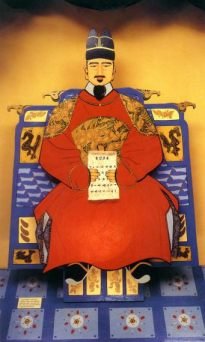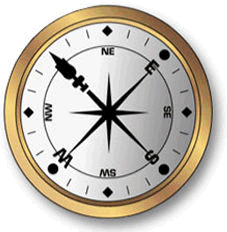King Sejong: Korea's Finest Ruler

During his 32-year reign, King Sejong energetically promoted learning. He was responsible for the creation of the Korean Hangul alphabet, and this scientific alphabet is his most known achievement. This alphabet enabled literacy to become more available to the general population, who could not be expected to master the classical Chinese language that was the official written language of Korea at the time.
King Sejong was a scholar, philologist, musician, poet, and a skilled swordsman.
In 1420, King Sejong established the Chipyon chon (Hall of Worthies), a royal research institute. He gathered the foremost scholars and writers of the time and had them compile some 20 works on history, geography, astronomy, mathematics, military science, pharmacology, and agriculture. These also included Encyclopedias on Chinese medicine and Korean medicine (hanyak). Of the many valuable books that were published during his reign, a collection of King Sejong's own poems praising Buddha entitled Worin Chon-gangjigok were also published.
King Sejong had great respect for scholarship, but as you can see in this letter that he wrote to Song Sammun (1418-1456), one of the scholars working on the Korean alphabet, he also stressed balance. "Unlike many other occupations, scholars have the greatest responsibility to the people. Their work can ultimately improve the lives of all people for many decades. But if an academic becomes lost in his study, he cannot see how his work can benefit others. Therefore, like a well-balanced fencing stance, or a reasonable argument, the scholar's life must be even and balanced." You will notice the reference to training with the sword in this quote, and in fact, King Sejong referred to the sword and training often. Like other warriors, he believed that life's problems could be solved in shaping the mind and body through the discipline of the sword. Like many modern martial artists and warriors, he pursued his craft for physical, mental and spiritual benefits. In the same letter as quoted above, he addressed the creation of devising the phonic alphabet, again using a fencing metaphor:
"When I spar with the sword, I must judge to attack quickly, giving no quarter with ferocity, or to carefully assess my opponent's weaknesses, and land telling blows judiciously. Your problem - and indeed all of life's difficulties - can be seen in this light. I have no doubts that my sword will cut. It is up to my judgement based on experience and training to know how and when to lay the blade. I trust your experience and training will also lead you to a successful resolution of this problem."
King Sejong governed his people with affection and virtue. He was willing to see his own mistakes and was quick to point out other's integrity, thus endearing him to his friends and subjects alike. King Sejong's strength of character and remarkable intellect were combined with genuine humility. In his journal, he wrote, "All that I am, or will be, I have learned from my family, my friends, my teachers, and training with the sword."
King Sejong's tomb and Sejong Hall are beautiful, and a fitting tribute to this outstanding ruler.

